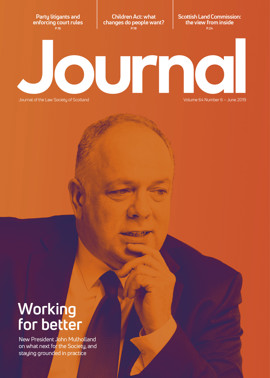Managing the risk of workplace stress

Your heart races, your breath quickens, your muscles ready for action. Are you being chased by a wild animal? No. You’re running late for a client meeting.
It’s well known that being a lawyer is stressful. A number of studies have shown a high level of stress among lawyers. According to a recent survey carried out for insurance firm Protectivity, lawyers are the second most stressed professionals in the UK. The findings outline that 63% of respondents active in the legal industry report experiencing stress on a daily basis.
Stress is also cited as the most common reason for calls to the LawCare helpline for the legal profession. A breakdown of statistics is available on LawCare’s website.
In small doses, a little bit of pressure can be good for you. But being under stress for long periods is not. It can cause tension, anxiety, anger and depression. It can damage your physical health, too.
Stress as a factor in professional indemnity claims
Workplace stress and employee wellbeing are high-profile topics and are often high on employers’ agendas these days, in terms of how to avoid the former and achieve the latter. Much that is written addresses the need to preserve your workforce and focuses on the impact on firms of absence through stress-related sickness.
However, a further reason why firms should take seriously the issue of workplace stress and its impact is as a risk factor in respect of professional indemnity claims.
From the perspective of risk management, it’s important to understand that high levels of stress can affect the health of staff, reduce their productivity and also lead to performance issues. At a basic level, a professional-client relationship rests firmly on that professional’s ability to deliver quality client services. This requires solicitors to approach engagements with appropriate levels of effort, competence and objectivity. Feelings of anxiety or stress potentially constrain a solicitor’s ability to approach client service with the requisite healthy attitude. In this regard, a stressful environment in a law firm can lead to a diminished client service.
Setting a good example to employees in how you manage workplace stress is paramount to ensuring a positive and healthy organisation. This, in turn, will help reduce the likelihood of future PI claims.
The impact of stress
High stress levels can have a significant effect on a person, and this can lead to failings in terms of efficiency, productivity and conduct. While it’s not an excuse or defence, stress is sometimes cited as a contributing factor in circumstances that can lead to complaints and claims. For example, the impact of stress can result in:
- mistakes and errors of judgment;
- reduced efficiency;
- changes in behaviour – abruptness or rudeness to clients or to other solicitors.
Mistakes and errors of judgment
Various studies have shown that stress affects decision making. Whilst a small amount of stress might actually narrow the focus of attention, too much stress can reduce the ability to think effectively about the decision in hand and increase the reliance on intuitive thinking (a type of thinking known to be vulnerable to error and bias). In a professional context, this may result in unexpected errors of judgment and this, sometimes in combination with the specific circumstances, can result in claims.
Reduced efficiency
By the very nature of their work, solicitors are under performance pressure all the time. Solicitors handle critical cases and transactions for their clients. In addition, they require to prioritise a number of tasks during the course of every working day. Again, a certain amount of pressure helps us to achieve targets, meet deadlines and to achieve our goals.
However, problems can arise when that pressure becomes too intense. It is well established that there is a link between high levels of stress and reduced productivity. When stress becomes uncontrollable or unmanageable (or is perceived as such), the person begins to experience a decrease in performance levels, causing a decline in productivity and enthusiasm to respond to the stress. If a solicitor is suffering from high levels of stress, their productivity will almost inevitably suffer, which in turn can result in claims, for example unexplained delays or missed critical dates.
Changes in behaviour
Some people experience changes in behaviour in response to stress. This can include irritability, hostility, frustration and aggressive behaviour.
Those suffering from high levels of stress may also develop unhealthy coping tools, like substance abuse. It can also make it much harder to change existing behavioural patterns. As Paterson and Ritchie outline in Law, Practice and Conduct for Solicitors (2nd ed), in conduct cases, substance abuse “does not go to culpability. Nor does it necessarily go to mitigation”.
Taking steps to reduce work-related stress
With support systems and policies, law firms can seek to ensure that sources of stress are minimised.
Lawscot Wellbeing
The Law Society of Scotland has set up Lawscot Wellbeing, a dedicated online resource that provides or signposts support and guidance for people working in the law.
There is a huge amount of activity being carried out in this area and the Society is clearly determined to equip its members with information and signposting to help manage emotional wellbeing, as well as supporting them and their colleagues if in difficulty or crisis.
The Society is leading the way here. By being front and centre, it is raising the profile of the importance of wellbeing and de-stigmatising related issues.
The Society is in a great position in terms of influencing employers and starting the right conversations. However, the rest is up to all of us within the profession. It’s important to commit to creating the right culture and we need to take positive action to make it happen through strategy and training. It’s important that solicitors consider and discuss their wellbeing in the context of their own work. We cannot say one thing and practise another.
Work-life balance initiatives
In the Society’s Profile of the Profession survey, work-life balance was the most frequently given reason by 54% of respondents who stated they had considered leaving the profession in the past five years. In addition, achieving a work-life balance was the most important career aspiration over the next five years for almost a third of respondents.
Research indicates that working long hours can impact performance. It therefore makes sense that flexible working and work-life balance initiatives can improve employee performance and their related costs. It’s a simple fact: the fatigue which comes with drawn-out periods of overwork means there is more risk of a mistake. People who are free from worrying about how long they have to spend in the office can be more productive and effective in their work.
“Mental health check”
The Society is currently undertaking a “mental health check” of the legal profession, in partnership with See Me (www.lawscot.org.uk/members/wellbeing/mental-health-survey-2019/). This should give the Society a very useful sense of where further efforts need to be made. The survey closes at the end of June and it is well worth taking part.
Risk management – making an assessment
There are a number of practical steps for both firms and individuals to ensure that the working environment does not become too stressful.
As with other areas of risk management, identifying the risk is crucial. In terms of an assessment, some of the questions that might be asked are:
- What are the risks of stress?
- Would you be able to recognise signs of stress in yourself or in others? Do you know how to respond to stress?
- Do you assess the workloads of staff, as opposed to simply measuring hours worked?
- Does a pattern of absence within the firm reveal an underlying problem?
- Do you record and analyse actual and potential complaints and claims to identify where there might be issues? Does the issue of “stress” feature in this analysis?
- Is everyone within the firm able, willing and actively encouraged to admit mistakes or say that they need help? Is there a fear or blame culture within the office?
Taking action may include these issues:
- Addressing cultural issues within the firm – the tone should be set from the top.
- Embedding wellbeing into the organisation’s culture through reporting – see Elizabeth Rimmer’s (LawCare chief executive) article at Journal, May 2019, 24.
- Reviewing individual responsibilities and workloads.
- Ensuring performance reviews cover issues relating to stress and work-life balance.
- Taking advantage of assistance such as LawCare, a fantastic resource as a helpline.
Learning to cope with stress is not a substitute for identifying the underlying causes and dealing with them at source.
As with all areas of effective risk management, the benefits are likely to be realised in more than one aspect of the practice. As well as minimising the risks which could result in complaints or a negligence claim against the practice, improved job satisfaction and morale ought to result, and improved business efficiency.
Perspectives
Features
Briefings
In practice
- Tradecraft – one solicitor's experience
- Dear employer...
- Team building – for the Foundation?
- Accredited paralegal practice area highlight: conveyancing
- Accredited Paralegal Committee profile
- What's new for paralegals?
- Ask Ash
- Managing the risk of workplace stress
- Appreciation: Iain Alexander Macmillan
- Revealed – by your AML certificates






